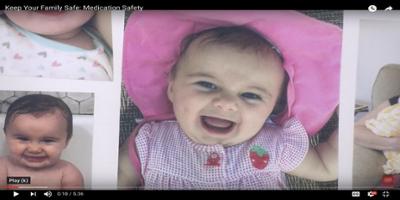Warning During COVID-19 Outbreak: Do Not Drink Bleach
Please read this advice from our colleagues at The Blue Ridge Poison Center:
There is a lot of confusing, incomplete, and just plain inaccurate information circulating about how to prevent the COVID-19 virus (“coronavirus”) from spreading. Some advice measures simply won’t help, and some could be downright dangerous. The Blue Ridge Poison Center at UVA Health warns that drinking bleach will not prevent COVID-19 infections and could cause serious injury.
When used correctly, cleaning products can be a safe and effective weapon against the spread of disease-causing germs including the COVID-19 virus (“coronavirus”). In particular, the U.S. Centers for Disease Control and Prevention (CDC) recommends using diluted bleach solutions on frequently-touched surfaces. Hand sanitizer with an alcohol content of at least 60% is recommended for killing COVID-19 on the hands, especially when soap and water is unavailable. However, these products and others used to clean and disinfect may have the potential to be toxic if used incorrectly. Exposure to cleaning products is the second leading cause of calls to poison centers nationwide.1
Children under age 6 are particularly at risk. Their curiosity leads them to handle products left within reach, and they may mistake cleaning products for something safe to eat or drink.
Adults are at risk for accidental exposure to cleaning products, too. Poison centers receive many calls every year from adults who mistakenly swallowed a cleaning product that had been transferred into a food or beverage container, such as an empty soda bottle.
Some cleaning products (including bleach) are caustic, meaning they can cause burns when swallowed or when sprayed or splashed onto the skin or into the eyes.
Mixing certain cleaning products together is dangerous. This could create a poisonous gas that causes coughing and serious breathing problems.
We recommend people follow the CDC guidelines for careful cleaning and disinfecting practices to help stop the spread of COVID-19. They offer this advice for using and storing cleaning products safely:
- Keep products ‘up and away,’ out of the sight and reach of children and pets.
- Leave products in their original, labeled containers. If you transfer a cleaning product into a food or beverage container (such as an empty soda bottle) someone may swallow it by mistake.
- Always supervise young children when using hand sanitizer. Children commonly lick their hand after an adult applies hand sanitizer. This is not an amount expected to cause serious injury. However, if a child drinks from a bottle of hand sanitizer, intoxication could result.
- Don’t mix cleaning products together to create a stronger effect. Certain combinations could create harmful gases.
- Some ingredients in “natural” or homemade products, such as essential oils, may also be quite poisonous if swallowed or mixed with other products. “Natural” does not always mean safe!
1 David D. Gummin, James B. Mowry, Daniel A. Spyker, Daniel E. Brooks, Michael C. Beuhler, Laura J. Rivers, Heba A. Hashem & Mark L. Ryan (2019) 2018 Annual Report of the American Association of Poison Control Centers’ National Poison Data System (NPDS): 36th Annual Report, Clinical Toxicology, 57:12, 1220-1413, DOI: 10.1080/15563650.2019.1677022
In the case of a poisoning or for information purposes, call the Upstate New York Poison Center at 1-800-222-1222. We are open 24/7, 365 days a year. Each year our center manages more than 50,000 calls from health care providers, 911 operators, hospitals, industry, schools, and the general public in our 54-county service area.
Follow us on Facebook and Twitter to stay up to date with the latest information.
About Upstate New York Poison Center
Housed inside Upstate Medical University in Syracuse, NY, the Upstate New York Poison Center is dedicated to reducing the number, cost and severity of poisonings within its designated 54-county service area as mandated by New York State Law. The Center is available 24 hours a day, 365 days a year to both health professionals and the general public at 1-800-222-1222.
About Upstate Medical University
SUNY Upstate Medical University in Syracuse, NY, is the only academic medical center in Central New York. It is also the region's largest employer with 9,460 employees. Affiliated with the State University of New York, Upstate's mission is to improve the health of the community through education, biomedical research and health care.





